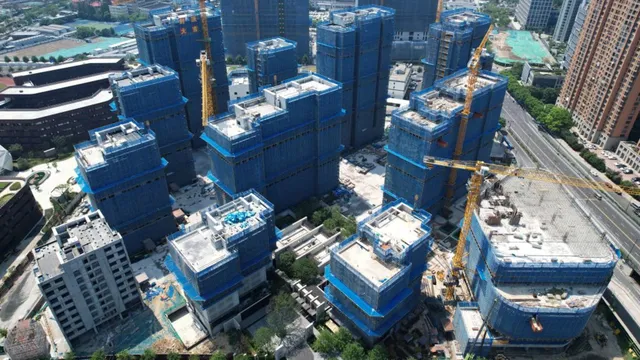
China"s property crisis hits Hangzhou amid U.S. sanctions
2024-09-03 00:00- Hangzhou ranked first in the latest index evaluating China's large- and mid-sized cities, driven by its growth in e-commerce and technology.
- Cities like Zhuhai and Dongguan have experienced significant declines in rankings due to a slump in the real estate market and government regulations on debt.
- The contrasting performances of cities highlight the importance of strategic government support and sustainable economic practices.
Express your sentiment!
Insights
Since 2015, an index has evaluated the economic vibrancy of China's large- and mid-sized cities, with Hangzhou emerging as the top city in the latest rankings. This city, known for its tech companies like Alibaba, has benefited from its growth as a hub for e-commerce, manufacturing, and finance. In contrast, cities like Zhuhai have seen significant declines due to a slump in real estate, dropping 32 places to 157th. The downturn in property markets has led to a halt in home purchases and financial struggles for builders, impacting overall economic growth in several regions. The Chinese government began tightening regulations on real estate developers' debt reliance in 2020, which has contributed to the current property crisis. This crackdown has adversely affected cities that were previously thriving, such as Dongguan and Zhengzhou, the latter being home to Foxconn. While some cities like Shenzhen have improved their rankings, others have suffered, highlighting the uneven impact of these economic challenges. Wuhan and Hefei have shown resilience, with Wuhan rising nearly 30 places to second in the index, thanks to its efforts to maintain factory operations during the pandemic. Hefei also benefited from government support for technological development, keeping it among the top ten cities. The contrasting fortunes of these cities illustrate the varying responses to economic pressures and the importance of strategic government interventions. Overall, the property crisis and geopolitical tensions have reshaped the economic landscape in China, with cities like Hangzhou continuing to thrive while others struggle to adapt. The situation underscores the need for sustainable economic practices and diversification to mitigate future risks.
Contexts
China's property crisis is exacerbated by external pressures, including ongoing U.S. sanctions and tariffs. The Trump administration's tariffs, aimed at addressing unfair trade practices, have garnered bipartisan support, indicating a sustained approach to economic measures against China regardless of the upcoming presidential election. In addition to trade tensions, China is facing significant challenges from natural disasters, such as Super Typhoon Yagi, which recently struck Hainan, causing destruction and highlighting the vulnerability of the region. These events can strain economic stability and impact property markets. Furthermore, China's shifting lending strategy in Africa, focusing on smaller loans for development projects, reflects a cautious approach to mitigate debt risks. This change comes amid a backdrop of reduced loans and defaults, indicating a need for financial prudence that may also influence domestic economic policies. As China navigates these complex issues, including potential bans on its agricultural exports, such as canola from Canada, the interplay of international relations and domestic economic conditions will be crucial in shaping the future of its property market and overall economic health.